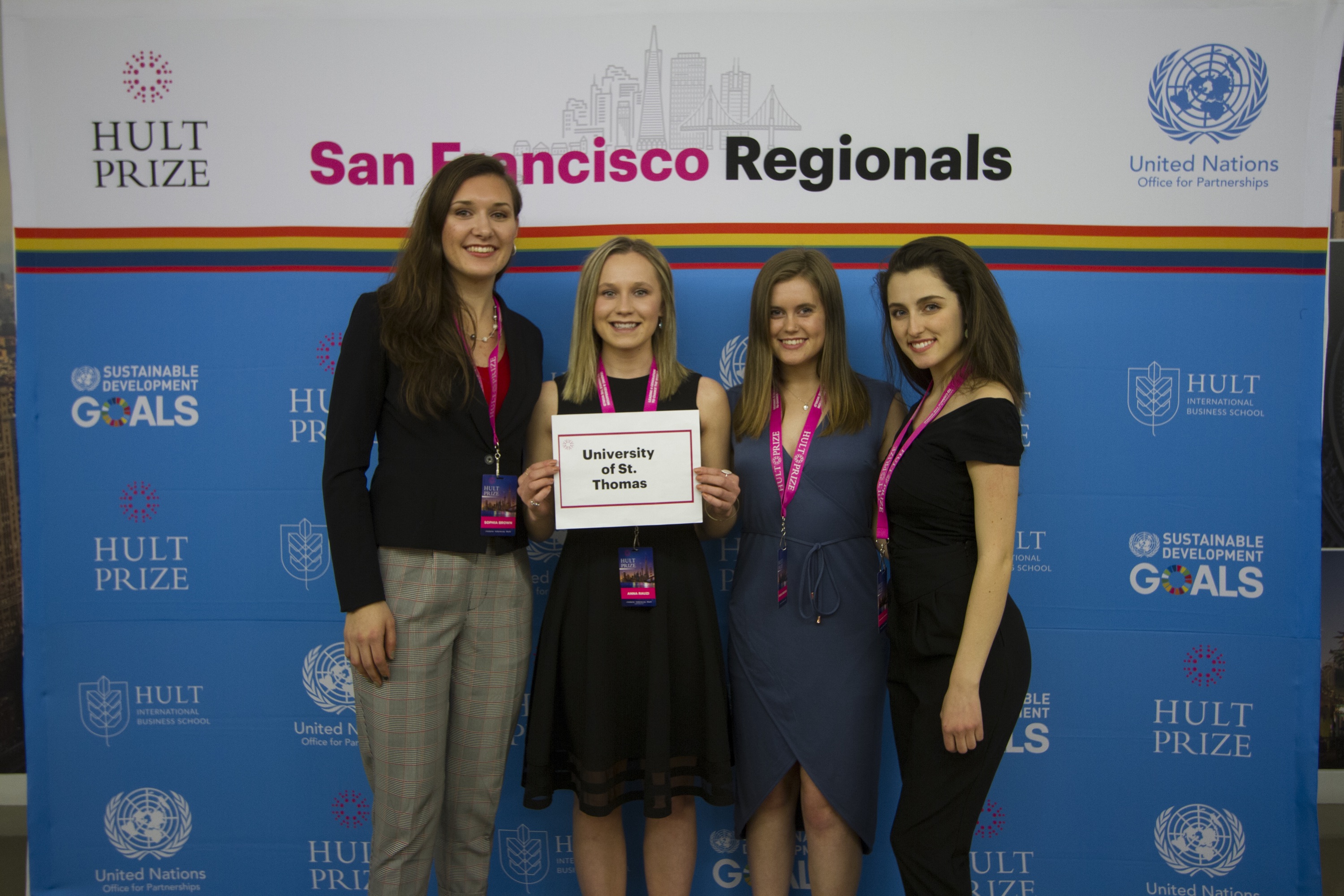
Four St. Thomas undergraduate students advanced in March to the final round of the Hult Prize competition, a social innovation and entrepreneurship contest in San Francisco, for their water purification business Solacqua.
The four St. Thomas students were junior Anna Rauzi, a neuroscience major; and sophomores Christina Ippoliti, a biology major; Sophia Brown, a biochemistry major; and Marisa Smedsrud, a physics major.
Last fall the students developed Solacqua, a water purification system that uses solar power to create hydrogen peroxide, which that eliminates pollutants from water.
The Hult Prize competition is an international social innovation and entrepreneurship competition that challenges participants to create products that will positively impact society as well as become a viable profit-making business.
“It’s super exciting to see all these kids from around the world working towards helping people, all the teams were doing that, so it was really cool and it’s been kind of inspiring,” Ippoliti said.
Students from St. Thomas have competed for the Hult Prize in each of the past five years, but this year was the first time the university’s team advanced to the final round.
Junior Josh Faffler, a business student, was involved in the process of helping the team improve its business knowledge, as all the students are science majors.
“It was really great to see first of all how excited and how motivated our team got to do the best that they could for this competition,” Faffler said.
This year’s competition included a challenge to harness the power of energy to transform the lives of 10 million people by 2025.
The idea for the water purification system was inspired from a biology course that Ippoliti took last fall.
“I took BIO 209, and it’s all about sustainability, and they talked about this thing called the TAML”, Ippoliti said. TAML stands for tetra-amido macrocyclic ligands, which are a type of environmentally friendly catalyst.
“I thought that was cool because it gets rid of chemicals in the environment that are really hard to get rid of in water, like BPA and estrogenic chemicals,” Ippoliti said.
The water in the students’ purification system is treated by a TAML pill and runs through a carbon filter, becoming pure drinking water.
The business partnered with Barefoot College, a nonprofit that works toward improving living conditions in underdeveloped countries. The nonprofit has already done work involving solar energy panels in villages in India and wants to bring this new water purification product to those same villages.
“Barefoot College will train women figures in these villages to produce these water filtration units and then bring them back to their villages and learn how to do maintenance,” Faffler said.
The team made the top six finalists in the final round but did not get picked as the winner, which would have sent them on a trip to the Hult Castle in the United Kingdom to refine their plan and possibly earn $1 million toward the business.
However, they are participating in the wildcard option, which may give them the chance to travel to the U.K. They will find out the results in early May, but even if they do not get selected, they still have ambitions for the business plan.
“My teammates and I would love to make this into a real business because we have the business plan all figured out and actually use it to help people,” Ippoliti said.
Ignacio Garcia can be reached at garc3913@stthomas.edu.

